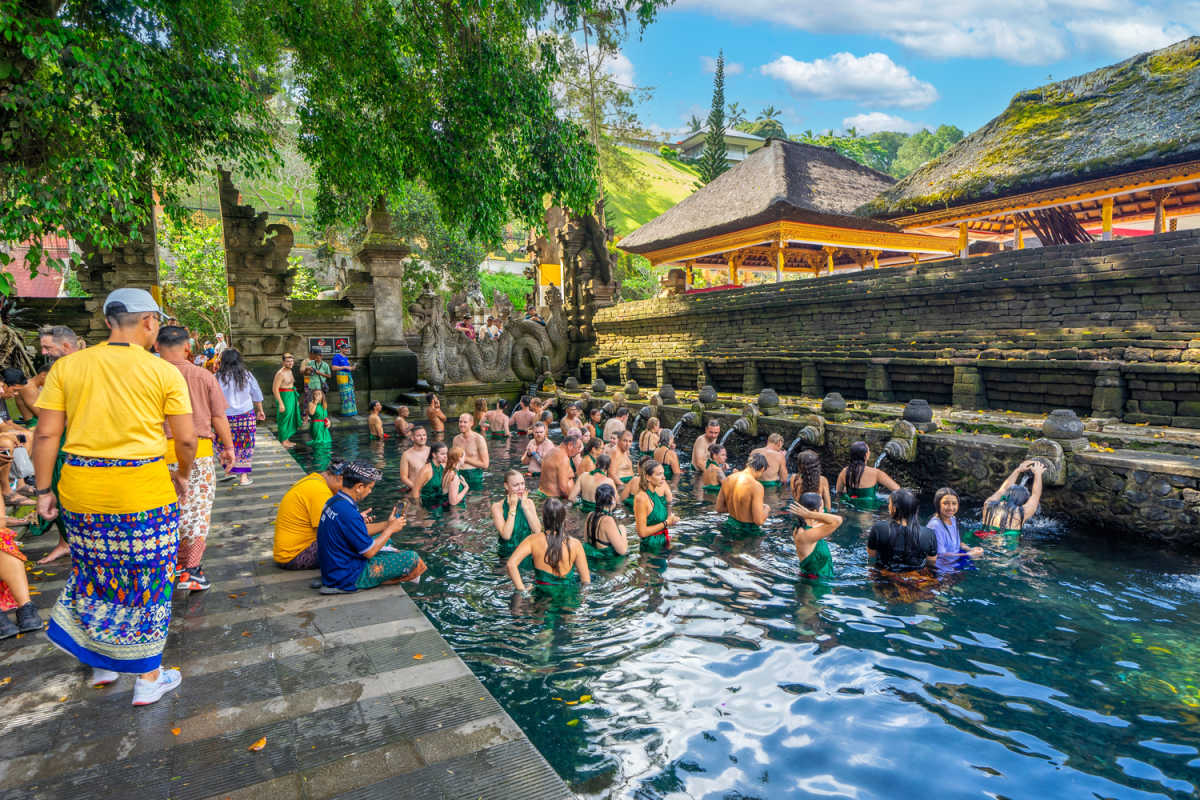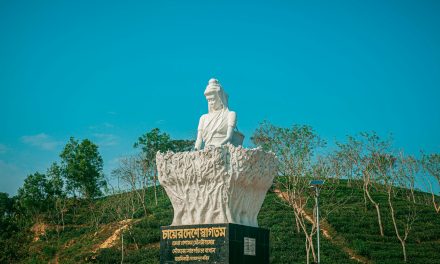In recent discussions, spiritual leaders in Bali have highlighted a noticeable increase in tourists seeking out traditional Balinese melukat ceremonies. These sacred rituals are deeply rooted in history, serving as a form of water purification—one that dates back centuries. However, with the growing interest, there is a rising concern that many visitors may be participating merely for social media content rather than understanding the significance behind these spiritual practices.

The Cultural Landscape of Bali and Its Blessings
Bali is a treasure trove of cultural richness, extending a warm welcome to individuals eager to immerse themselves in its most significant ceremonies. However, this openness raises questions among locals about whether the essence of these traditions is being preserved amidst the growing influx of tourists.
On one side, many Balinese believe that sharing their culture helps keep it vibrant and alive. Yet, there are voices of concern about the commercialization of these sacred ceremonies. As someone who has visited Bali, I can relate to the vibrant atmosphere that surrounds these rituals. The feeling of connection to the culture is what draws many of us in, but it’s essential to engage with respect and reverence.
Shifting Trends: Social Media’s Influence
An interview with Dewa Gede Bawa, a yoga teacher based in Ubud, shed light on the impact of rising social media platforms like TikTok on tourism in Bali. Since its popularity surged, more travelers are drawn to experience melukat ceremonies, reminiscent of the earlier wave generated by Elizabeth Gilbert’s book and the film adaptation of “Eat, Pray, Love.” I vividly remember the first time I watched that movie; it ignited my desire to visit Bali.
The Need for Respect and Understanding
Bawa articulated a key point: many individuals might seek these spiritual experiences as a form of healing after the isolating months of the pandemic. It reminds me of my own experience during a particularly tough time, where I turned to travel as a form of solace and rebirth. However, it is vital for tourists to approach melukat ceremonies with the reverence they demand. Bawa emphasized the importance of understanding the profound nature of these practices rather than treating them as mere activities to check off on a travel list.
Balancing Cultural Sharing and Preservation
Bawa advocates for a more conscious sharing of these traditions. As he stated, “For the last four or five years, I feel this tradition has been too exposed.” He noted the need for both tourists and locals to uphold the rituals’ dignity by following established protocols, such as proper dress with sarongs and a respectful demeanor.
Marlowe Bandem from the Saka Museum reiterated this sentiment: “Melukat is not meant to be a grand spectacle.” It’s a personal journey that should resonate deeply within one’s heart. For anyone considering joining these ceremonies, understanding their meanings and implications is crucial. Remember, it’s not just about the experience—it’s about honoring a rich cultural heritage.
Real Experiences, Real Growth
American traveler, Andrea Elliott, shared her poignant journey during a melukat ceremony in Bali. Concerned about cultural appropriation, she made a conscious choice to engage respectfully by opting for a lesser-known temple. “I wanted to be guided and welcomed by a local rather than feel like an outsider,” she recounted. Andrea’s experience serves as a heartfelt reminder that genuine engagement comes from understanding and respect.
Practical Tips for Tourists
As more travelers flock to Bali, both the Bali Tourism Office and the national tourism board have provided guidelines on cultural respect. Here are a few practical tips for tourists:
- Research the significance of the ceremony you wish to partake in.
- Follow dress codes—wear a sarong and engage respectfully.
- Seek guidance from local practitioners to better understand the rituals.
- Reflect on your intentions for participating in these ceremonies to ensure they align with cultural respect.
As we navigate the delicate balance between cultural sharing and authenticity, it’s vital for everyone involved to respect and honor the profound meaning behind Bali’s traditional water blessing ceremony. By doing so, we can support the preservation of this sacred practice for generations to come.






